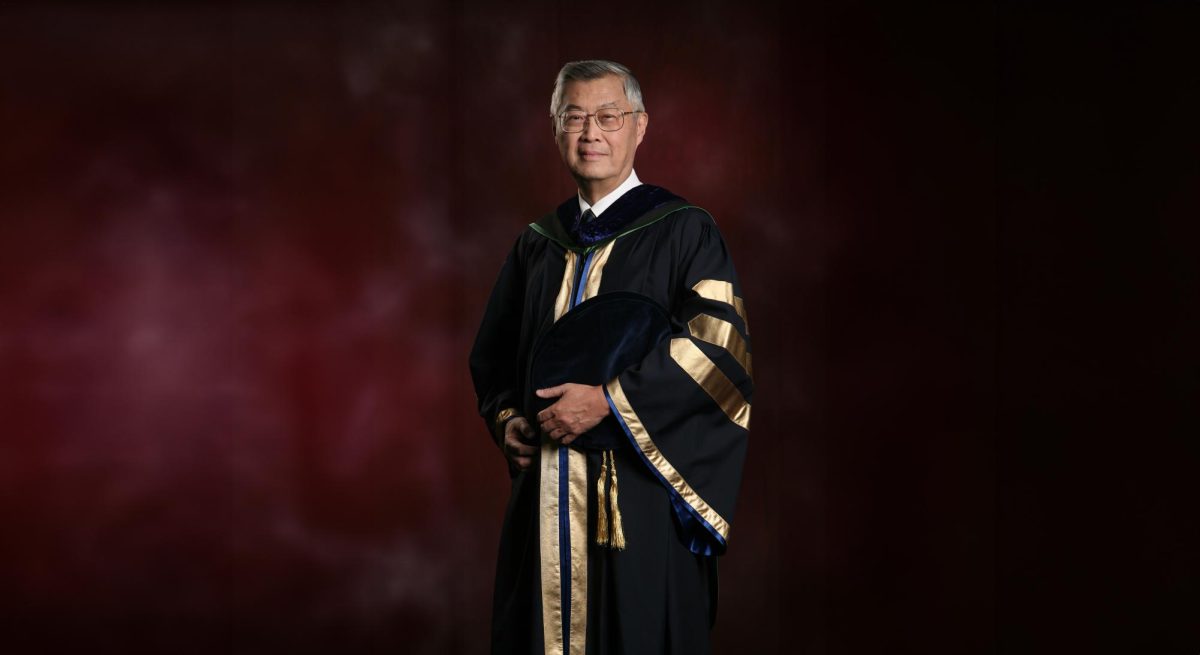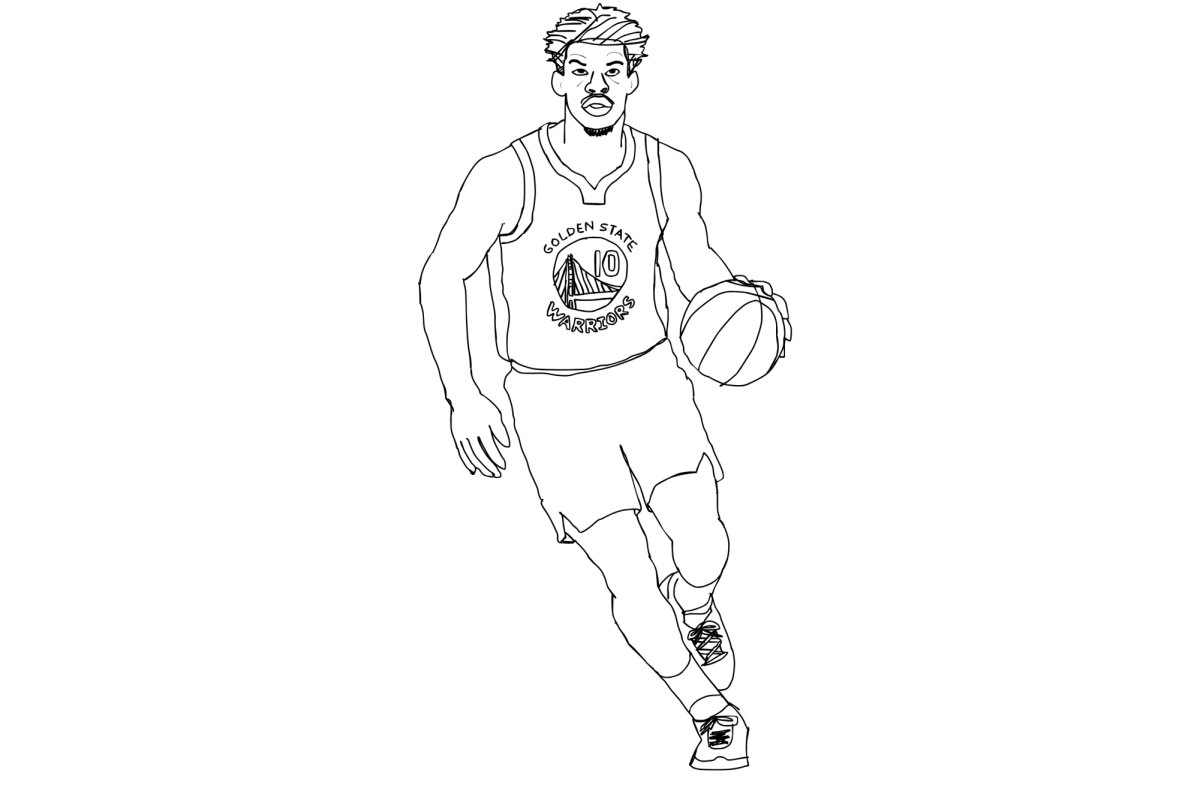Thirty-some years ago at the Berkeley ceremony granting my Ph.D. in Artificial Intelligence, my adviser finally met my family. He asked what he did, and my father replied, “Oh, I was president at San Francisco State University.” My adviser’s jaw dropped practically audibly on the floor. In seven years mentoring me, he’d never had any inkling I was the son of the president of the giant, storied university just across the bay.
A theoretical physicist, Chia-Wei Woo in 1983, became the first Chinese American to head a major U.S. university, and his service earned him “the key” to San Francisco from then-mayor Dianne Feinstein.
He was a man of great heart and also of great accomplishments. My father’s contributions to humanity are attested by numerous accolades worldwide, including Commander of the British Empire, the French knighthood (Chevalier de la Légion d’Honneur), Hong Kong’s Gold Bauhinia Star and the U.S.’ Eleanor Roosevelt Humanitarian Award.
Most of you have never heard me mention my legendary father. At age 15, I dropped my last name and started using a pen name for academic work because I knew I’d need to forge my own very different path toward his same ideals of education, peace, humanitarianism and bridge building.
I lost my father last month and finding words has never been so hard. As I transition to the delicate work of publicly honoring and upholding his legacy, I share with you my personal grief and professional reverence of my father’s story and mine.
Born in Shanghai in 1937 and later graduating at the top of his year in Hong Kong, he was offered a scholarship to Georgetown College in Kentucky at age 17. Even having landed on American shores speaking almost zero English, it took him just one year to earn his bachelor’s degree — with a double major! They’d never seen anything like him. He could’ve been from Mars.
He would later regale us with stories of being encircled by the Kentucky locals staring at him up and down.
Someone would slowly venture: “Y’ain’t Black…!” My father would agree, “Nope, not Black.” More moments would pass. “Y’ain’t white…?” “Nope,” my father would confirm, “not white.” Finally, someone would voice the question: “Well, then… what’re ya?”
I think it was there that building bridges between cultures became his lifelong mission. My father would take us on road trips every year, crisscrossing almost every state and spending months absorbing vastly different subcultures. He expanded our horizons taking us to see Taiwan, Hong Kong, and mainland China in the 1970s. He insisted we eat food from all over the world, giving us the amazing gift of loving the cuisines of many different cultures (even though we discovered many years later that he himself secretly didn’t actually enjoy many of them).
My father went on to earn his Ph.D. in theoretical physics from Washington University in St. Louis. After postdoctoral research at the nascent UC San Diego, he became a professor at Northwestern University in 1968. He contributed reams of papers to solid-state physics, the many-body problem, condensed-matter and low-temperature physics, and quickly rose to chair of physics and astronomy. In 1979, he returned to his cherished UC San Diego to serve as provost at Revelle College, championing its liberal arts Renaissance education — ideals he then brought to SFSU as its president in 1983.
In 1988, he was recruited by Hong Kong’s then-British administration for a tremendously ambitious plan to found the region’s first American-style research university. Starting from scratch amidst a landscape still dotted with shanty towns, his vision for the Hong Kong University of Science and Technology helped reshape the city and region into a knowledge-based economy through scientific research and inspired youth. My father’s proposal for a “Hong Kong Bay Area” laid the groundwork for the Guangdong-Hong Kong-Macao Greater Bay Area.
When finishing my Ph.D. on AI at UC Berkeley in 1991, I passed over other international opportunities to stand with him as one of 400 professors in the founding wave of HKUST. In those early days, the university even had to build the region’s first internet service provider, first digital library and many other firsts. Over three decades, I continued my impact work at both HKUST and Berkeley’s International Computer Science Institute. Today, HKUST is ranked among the world’s top universities by all accounts.
My father’s memoirs reveal his clear visionary foresight and dedication to doing the right thing, even when the conventional wisdom surrounding him was advising against it. His inspiring adherence to this principle demonstrates what it takes to be a true trailblazer. His mantra “create, don’t replicate” has been my lifelong North Star.
A paragon of education, peace and humanitarianism, my father passed on to us an ingrained sense of obligation to seek out the crucial, difficult societal problems that others might not otherwise tackle. He inspired everyone who knew him with his firm stand for Renaissance ideals, his care for those less fortunate and his determination to build bridges between cultures.
Until HKUST’s memorial ceremony for my father, I hadn’t met Professor Naubahar Sharif, but he came up and hugged me with tears in his eyes.
“I owe my life to your father,” he said.
When Sharif was a teenage minority student in Hong Kong, my father told him our new international university needed a wide range of cultures and urged him to attend HKUST, which then propelled him to his Cornell master’s and doctorate degrees. Today, he is back at his alma mater, HKUST, as an acclaimed professor and head of public policy.
Despite his massive accomplishments and fame, my father always remained humble, approachable and down to earth, never forgetting his poor immigrant roots and war-torn childhood. He happily lived a simple life with the love of his life and his rock, my mother, Yvonne. The first two of us children were born in a prefabricated trailer home in St. Louis. We grew up clipping discount coupons in a largely blue-collar neighborhood in Chicago. To the very end, he excitedly delighted in every delicious bargained $3 Chinese fast food meal, chatting with any nearby restaurant patrons.
No matter who we were around, from whatever socioeconomic class or cultural background, my father constantly reminded us, “There but for the grace of God go I.” He never let us forget that the most important achievement in life is to take care of all the humans on our planet. He held high standards but detested bullies, always reminding us that if you happen to be more fortunate, then your job is to help those less so.
He championed empiricism and rationality in everything he said and did. When I was 7 on a bike ride with my father, he pulled us over onto a sidewalk bench for a break. He asked me what color car I thought was most common, and I guessed blue. Fine, he said, I’ll pick white. We spent five minutes or so counting passing cars (it turned out I was right). My father then used this to teach me the basics of statistics and estimating probabilities.
Fourteen years later, my father’s example would give me the fortitude and the confidence to stand my ground against my Berkeley Ph.D. adviser and almost the entire AI establishment, arguing in my dissertation that the dominant rule-based AI paradigm built on boolean logic would never be enough to handle human language and intelligence — that instead, statistical approaches like machine learning and neural networks would be the breakthrough in AI.
That later enabled me to invent the web’s first global translator built on radically new language models, which spawned Google and Microsoft Translate.
One of the most important early lessons my father instilled — growing up among physicists and regularly getting brought along to places like Fermilab at Argonne National Laboratory — is the existential danger of weaponization that accompanies the technological benefits.
My father championed the Renaissance ideal of education because scientists and engineers cannot be safely divorced from humanities, social sciences and the arts. Even in secondary school, his writing won literary awards (earning the favor of a Hong Kong celebrity actress!) He taught us that no knowledge can be practiced without a deep sense of humanity and ethics.
His great legacy of bridge building from Chicago, to California to Hong Kong, to carry forth the advancement and sharing of human knowledge across societies inspires me every day. Even now — as I put the final touches on my book Raising AI to drive public conversation on the existential danger of AI-driven polarization, fear-mongering, hate-mongering, demonization and information disorder — I am inspired by my father’s values to protect humanity by ensuring science is used for peaceful means.
Ten years ago I had an Oppenheimer moment seeing how the natural language processing and machine learning tech that scientists like myself helped pioneer — with the aim of helping everyone better understand facts, and better understand each other — was instead powering AI algorithms on social media, newsfeeds, chatbots, recommendation and search engines, in ways that dangerously drive people toward misunderstanding and hatred.
It was my father’s example that told me what I needed to do now.
As Martin Luther King Jr. said, “Darkness cannot drive out darkness; only light can do that. Hate cannot drive out hate; only love can do that.”
Thank you for all you taught us, Papa. The age of AI makes it more crucial than ever to carry on your humanitarianism and peace-building through educating as many humans as possible.
With the grace of God, so go we too now, Papa.
De Kai, author of “Raising AI” coming June 3 from MIT Press, is an AI professor who built the web’s first global language translator spawning Google and Microsoft Translate. He holds a joint appointment at HKUST and ICSI Berkeley and is an independent director of The Future Society. https://dek.ai








Theresa Hogg • Apr 3, 2025 at 2:42 pm
Wonderful! Thanks! ICSI is a great place and deserves folks like you.